Search
Search Results
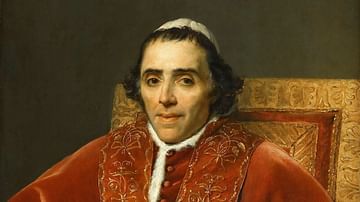
Image
Pope Pius VII
Portrait of Pope Pius VII, oil on panel by Jacques-Louis David, 1805.
Louvre Museum, Paris.
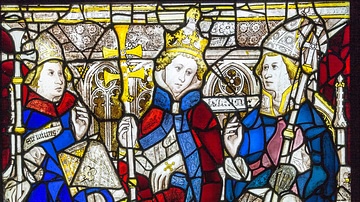
Image
Pope Celestine III
Stained glass window in York Minster depicting Pope Celestine III (1191-1198 CE)
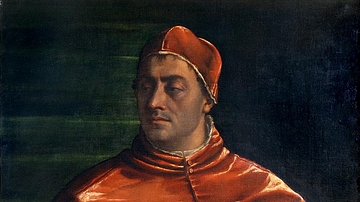
Image
Pope Clement VII by Sebastiano del Piombo
A 1526 CE portrait by Sebastiano del Piombo of Pope Clement VII (r. 1523-1534 CE). (National Museum of Capodimonte, Naples, Italy)
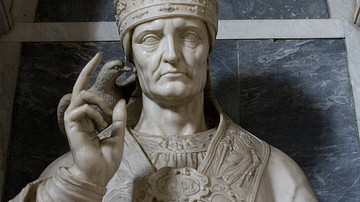
Image
Pope Gregory I
Statue of St. Gregory the Great in the Oratory of St. Barbara on the Caelian Hill, Rome.

Definition
Martin Luther
Martin Luther (l. 1483-1546) was a German priest, monk, and theologian who became the central figure of the religious and cultural movement known as the Protestant Reformation. Even though earlier reformers had expressed Luther's views, his...
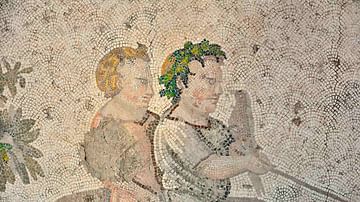
Article
The Great Palace of Constantinople
The Great Palace of Constantinople was the magnificent residence of Byzantine emperors and their court officials which included a golden throne room with wondrous mechanical devices, reception halls, chapels, treasury, and gardens. In use...
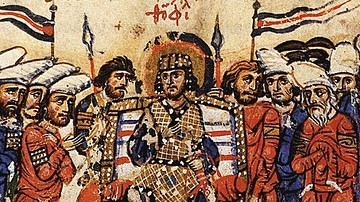
Definition
Byzantine Government
The government of the Byzantine Empire was headed and dominated by the emperor, but there were many other important officials who assisted in operating the finances, judiciary, military, and bureaucracy of a huge territory. Without elections...
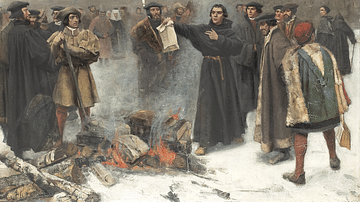
Article
Exsurge Domine
Exsurge Domine (“Arise, O Lord” in Latin) is a papal bull issued 15 June 1520 by Pope Leo X (served 1513-1521) condemning Martin Luther’s 95 Theses as heresy along with any other works by Luther or those who supported him. Luther burned the...
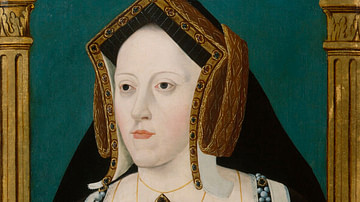
Definition
Catherine of Aragon
Catherine of Aragon (1485-1536 CE) was a Spanish princess who famously became the Queen of England and the first wife of Henry VIII of England (r. 1509-1547 CE). When the marriage did not produce a male heir, Henry VIII became desperate to...

Video
Doctrine of Discovery: What Is It and Why is Pope Francis Being Asked to Denounce It?
Pope Francis is facing calls to rescind a centuries-old policy called the ‘Doctrine of Discovery,’ stemming from a series of edicts, known as papal bulls, dating back to the 15th century, which states that white European nations "discovered"...